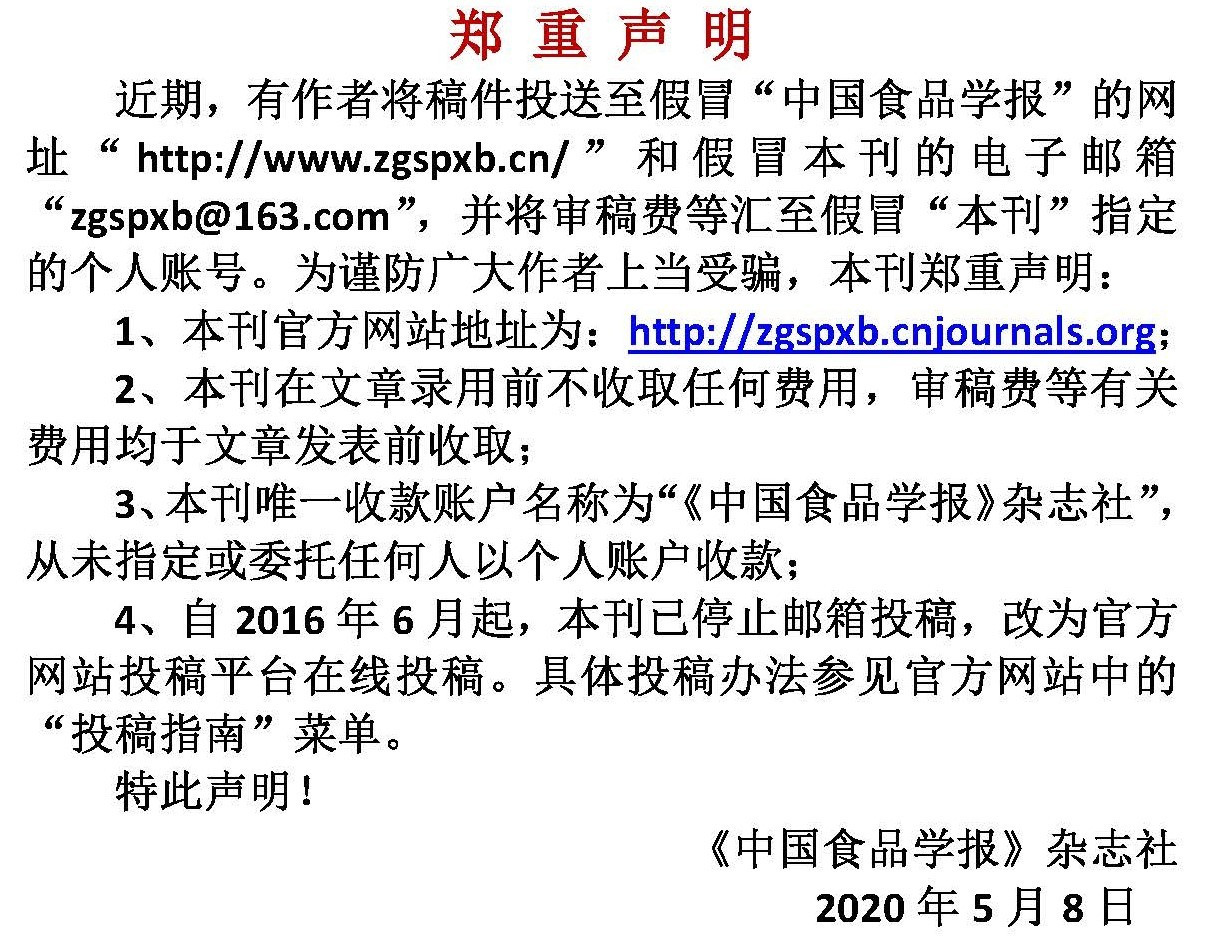抑制活菌泡菜贮藏过程中品质劣变的研究
作者:
作者单位:
(浙江工商大学食品与生物工程学院 杭州 310018)
作者简介:
通讯作者:
中图分类号:
基金项目:
浙江省公益技术研究计划农业项目(LGN18C 200014);浙江省教育厅科研项目(Y202250368)
Studies on the Inhibition of the Gas Production and Quality Deterioration of Pickles during Storage
Author:
Affiliation:
(School of Food Science and Biotechnology, Zhejiang Gongshang University, Hangzhou 310018)
Fund Project:
引用本文
王向阳,盛雪蓉,俞兴伟,施永清,顾双.抑制活菌泡菜贮藏过程中品质劣变的研究[J].中国食品学报,2024,24(9):389-397
复制分享
文章指标
- 点击次数:
- 下载次数:
- HTML阅读次数:
历史
- 收稿日期:2023-09-16
- 最后修改日期:
- 录用日期:
- 在线发布日期: 2024-10-21
- 出版日期:
文章二维码

版权所有 :《中国食品学报》杂志社 京ICP备09084417号-4
地址 :北京市海淀区阜成路北三街8号9层 邮政编码 :100048
电话 :010-65223596 65265375 电子邮箱 :chinaspxb@vip.163.com
技术支持:北京勤云科技发展有限公司
地址 :北京市海淀区阜成路北三街8号9层 邮政编码 :100048
电话 :010-65223596 65265375 电子邮箱 :chinaspxb@vip.163.com
技术支持:北京勤云科技发展有限公司
